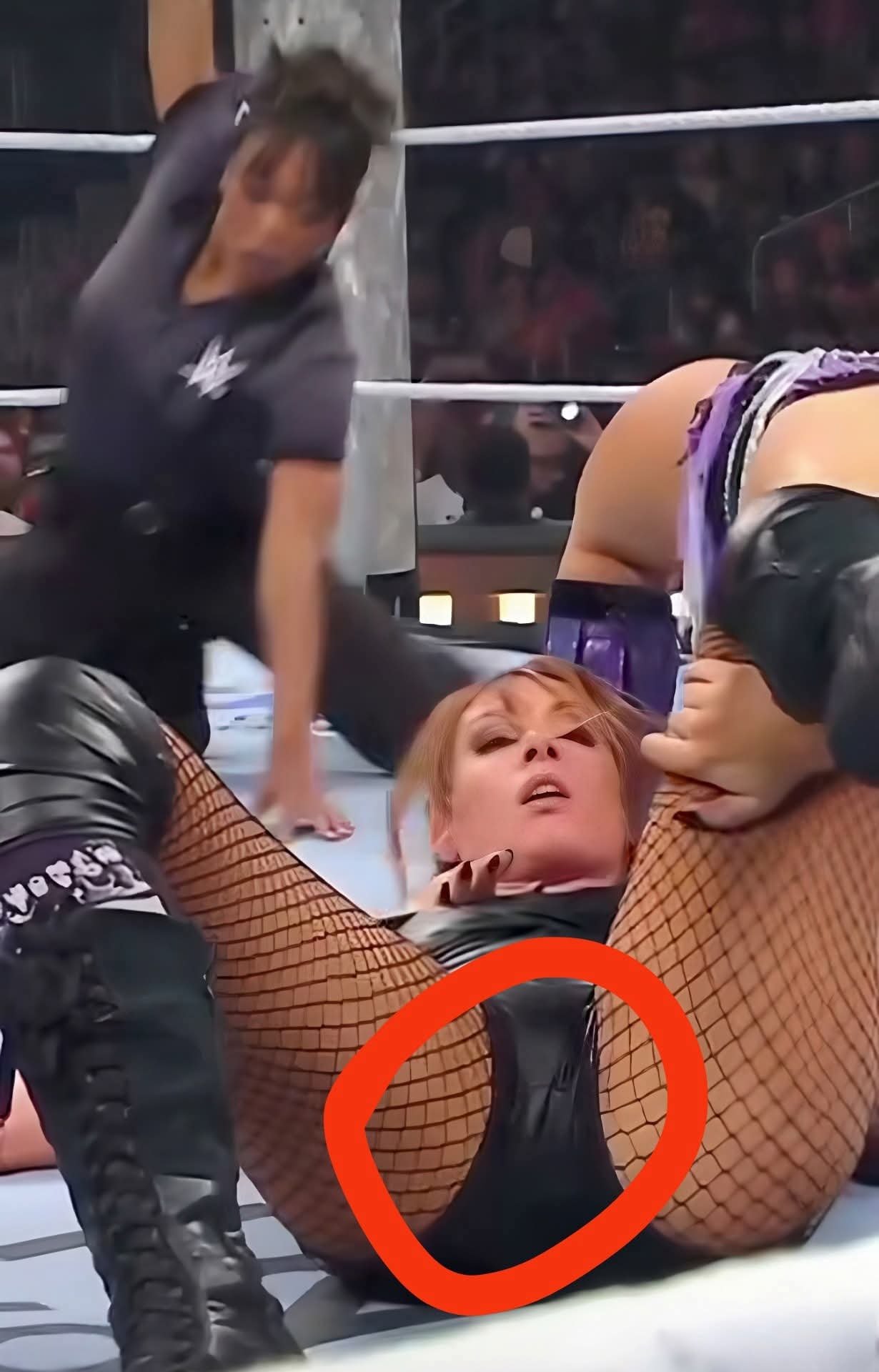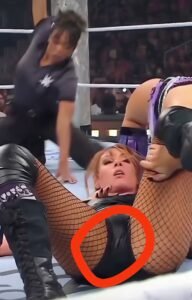The Man vs. The Machine: How Becky Lynch’s Raw Protest Has Left WWE Red-Faced

The Man vs. The Machine: How Becky Lynch’s Raw Protest Has Left WWE Red-Faced
In the meticulously scripted universe of WWE, where narratives are controlled, promos are often pre-approved, and moments of genuine, unadulterated realness are a rare commodity, the actions of one superstar can send shockwaves through the entire corporate structure. This week, that superstar was Becky Lynch, and her actions during a live episode of Monday Night Raw have reportedly left the company hierarchy, from Chief Content Officer Paul “Triple H” Levesque to the boardroom executives at TKO Group Holdings, deeply embarrassed and scrambling for a response.
The incident, which has since been dubbed the “Raw Rebellion” by fans online, did not involve a physical altercation or a backstage blow-up. Instead, it was a powerful, silent act of protest that spoke volumes. After being officially removed from the Women’s World Championship match at the upcoming premium live event—a decision handed down by authority figures citing a “lack of recent momentum”—Lynch was scheduled for a standard interview segment. What transpired was anything but standard.
Taking hold of the microphone to a thunderous ovation, “The Man” stood in the center of the ring, her face a canvas of simmering frustration. The crowd waited for the fiery promo, the scathing wit, the verbal dismantling of her opponents and the management that had wronged her. Instead, Lynch remained silent for what felt like an eternity. After nearly a minute of building tension, she simply said, “You all know what this is. You all see what they’re doing. And you know it’s wrong.” She then dropped the microphone, sat down cross-legged in the middle of the ring, and refused to move.
For a full fifteen minutes, as production scrambled, cameras cut to confused backstage shots, and commentary teams floundered to fill the dead air, Becky Lynch sat. She did not break character. She did not acknowledge the officials pleading with her from the ringside area. She simply sat in silent protest, while the live audience chanted her name, turning the segment into an unplanned, anti-authority rally. The segment ended with an awkward cut to a commercial break, and Lynch was eventually escorted away by producers, but the damage to WWE’s planned narrative was done.
So, why is WWE reportedly so embarrassed? The reasons are multi-layered and strike at the heart of the company’s current corporate identity.
1. The Illusion of Control Shattered: Under the TKO Group Holdings umbrella, WWE is pushing a narrative of being a slick, globally recognized sports entertainment product. Live television is its lifeblood, and unpredictability is its greatest asset—but only when it’s their unpredictability. Lynch’s protest was a variable they did not script, could not control, and struggled to contain. It exposed the behind-the-scenes machinery in a way that made the company look disorganized. For fifteen minutes, one of the biggest stars in the world hijacked their flagship show, and there was no contingency plan. This embarrassment is not about anger at Lynch, but about the corporate shame of looking unprepared on a global stage.
2. The Uncomfortable Mirror Held Up to Creative: Becky Lynch’s silent protest was a direct indictment of the company’s creative direction, specifically for its women’s division. Her claim that the audience “sees what they’re doing” resonates because many fans and critics have voiced concerns that the division has lacked compelling, long-term storytelling. By taking a stand, Lynch inadvertently gave a megaphone to these criticisms. She made the backstage creative struggles a public-facing story. This is deeply embarrassing for a company that wants to project an image of seamless, compelling storytelling. It turns the spotlight from the in-ring action to the writers’ room, and suggests that one of their top talents has no faith in the material.
3. The Corporate Champion Problem: Lynch’s actions directly challenge the authority of Triple H’s regime. Since taking over creative, Triple H has been praised for a more wrestling-centric product, but his management style is still one of ultimate authority. Becky, a pillar of the company and someone with significant leverage, publicly defied that authority not with a shout, but with a quiet, undeniable act of defiance. This creates a precarious situation. How do you punish “The Man,” one of your most merchandisable and popular stars, without inciting a fan revolt? Yet, how do you not respond without looking weak? This Catch-22 is a source of significant internal embarrassment and tension.
4. The Authenticity Paradox: This is perhaps the most ironic source of WWE’s discomfort. For years, they have marketed Becky Lynch as “The Man,” a trailblazing, rebellious, speak-truth-to-power character. Her entire ascent to the main event of WrestleMania 35 was built on a wave of genuine fan support for her authentic defiance. Now, the very authenticity that made her a superstar has bled out of the script and into reality, and the company doesn’t know how to handle it. They are embarrassed because the “rebel” persona they sold for years has become inconveniently real. Punishing her for being exactly what they told the audience she was makes the entire operation look hypocritical.
Backstage reports paint a picture of a fractured response. Some within the company, particularly older veterans, see it as an unprofessional breach of contract that cannot be tolerated. Others, especially younger talent and some members of the creative team, privately applaud Lynch for having the courage to take a stand for what she believes is a stagnant storyline. This lack of a unified front only adds to the embarrassment, revealing a company at a crossroads between its old-school, top-down management style and a new era where superstar agency is increasingly powerful.
The fallout is immediate. Social media is ablaze with support for Lynch, with hashtags like #StandWithBecky trending worldwide. The incident has generated more mainstream media attention than any scripted segment on the show in weeks, but for all the wrong reasons from WWE’s perspective. The story is no longer about the Women’s World Championship; it’s about a rebellion against the corporate machine.
In the end, WWE finds itself red-faced not because of what Becky Lynch did, but because of what her actions revealed. She held up a mirror to the company, and the reflection showed a conflict between the carefully crafted illusion of control and the unpredictable spirit of the very stars who make the product compelling. The embarrassment is the gap between the story they want to tell and the story that is actually unfolding. How Triple H and WWE management choose to respond will define not only Becky Lynch’s future but also the soul of the company itself. The ball is in their court, and the world is watching.



